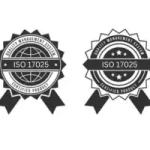- Table of Contents
- Introduction
- What is a Medical Laboratory Technician?
- The Importance of a Medical Laboratory Technician
- 1. Accurate Diagnostics
- 2. Supporting Healthcare Professionals
- 3. Quality Control and Safety
- 4. Technological Advancements
- 5. Impact on Public Health
- 6. Career Stability and Opportunities
- 7. Advocacy for Patients
- Requirements to Become a Medical Laboratory Technician
- Education
- Skills
- Certifications
- Step-by-Step Guide on How to Become a Medical Laboratory Technician
- Step 1: Research the Profession
- Step 2: Complete Required Education
- Step 3: Gain Clinical Experience
- Step 4: Obtain Certification
- Step 5: Apply for State Licensure (if required)
- Step 6: Seek Employment
- Step 7: Pursue Continuing Education
- Step 8: Explore Advancement Opportunities
- Related Medical Laboratory Technician Careers
- Clinical Laboratory Technologist:
- Cytotechnologist:
- Histotechnologist:
- Clinical Laboratory Manager:
- Molecular Biology Technologist:
- Salary of a Medical Laboratory Technologist
- Is a Career as a Medical Laboratory Technician Worth It?
- Conclusion
Introduction
The healthcare system is a vast network of professionals, each playing a crucial role in patient care. Among these essential players are medical laboratory technicians (MLTs), who operate behind the scenes to ensure that accurate diagnostic tests are performed efficiently. This blog post delves into the multifaceted world of medical laboratory technicians, exploring their responsibilities, importance, career requirements, and potential for growth in related fields. By the end of this discussion, readers will have a comprehensive understanding of this vital profession and the steps necessary to pursue a career in it.
What is a Medical Laboratory Technician?
Medical laboratory technicians are skilled professionals who conduct tests on body fluids, tissues, and other substances to diagnose medical conditions. They operate sophisticated laboratory equipment and adhere to strict protocols to ensure the accuracy and reliability of test results. The responsibilities of an MLT can vary widely depending on the laboratory setting, but some common duties include:
- Conducting Diagnostic Tests: MLTs perform various laboratory tests, including blood counts, urinalysis, and microbiological cultures. These tests are essential for diagnosing diseases and monitoring patient health.
- Operating Equipment: MLTs are trained to operate complex laboratory instruments such as microscopes, centrifuges, and automated analysers. They must ensure that the equipment is calibrated correctly and maintained regularly.
- Collecting Samples: MLTs often collaborate with other healthcare professionals to collect patient samples. This may involve drawing blood or preparing specimens for analysis.
- Analysing Results: Once tests are completed, MLTs analyse the data and interpret the results. They are responsible for identifying and reporting abnormal findings to the appropriate medical staff.
- Maintaining Records: Accurate documentation is critical in laboratory settings. MLTs must keep detailed records of tests performed, results obtained, and any quality control measures implemented.
- Ensuring Safety and Compliance: MLTs adhere to strict safety protocols and regulations to prevent contamination and ensure the safety of patients and laboratory personnel. This includes proper disposal of biohazardous materials and compliance with health regulations.
- Assisting in Research: In some settings, MLTs may assist in clinical research by conducting experiments and analysing samples for studies to improve medical practices.
Medical laboratory technicians play a pivotal role in the diagnostic process through these responsibilities, directly impacting patient care and outcomes.
KPI | Description |
Turnaround Time | Time taken to complete tests and report results. |
Accuracy Rate | Percentage of correct test results produced. |
Sample Integrity | Percentage of samples suitable for testing. |
Test Volume | Number of tests performed within a specific period. |
Compliance Rate | Adherence to safety and regulatory standards. |
Table 1: KPIs of a Medical Laboratory Technician
The Importance of a Medical Laboratory Technician
Medical laboratory technicians (MLTs) are integral to the healthcare system, serving as the backbone of laboratory services that support diagnostics and treatment. Their role is critical for several reasons, highlighting their profound impact on patient care and healthcare.
1. Accurate Diagnostics
One of the primary responsibilities of MLTs is to perform tests crucial for diagnosing diseases. Accurate laboratory results are essential for:
- Identifying Conditions: MLTs analyse blood, urine, and other specimens to identify conditions such as infections, metabolic disorders, and chronic diseases like diabetes. Their precise testing is pivotal in determining the correct diagnosis and guiding treatment plans.
- Monitoring Health: MLTs conduct tests that help monitor patients' health status over time. For instance, regular blood tests can track the effectiveness of treatments and signal any changes in a patient’s condition. This continuous monitoring can lead to timely interventions and improved health outcomes.
2. Supporting Healthcare Professionals
MLTs work closely with physicians, nurses, and other healthcare providers to ensure comprehensive patient care. Their importance extends to:
- Collaboration: MLTs communicate test results and findings to healthcare teams, providing vital information that informs clinical decisions. This collaboration enhances the overall effectiveness of medical interventions.
- Educating and Training: Many MLTs also educate healthcare staff about laboratory processes, test interpretations, and safety protocols. This knowledge-sharing fosters a better understanding of laboratory results and their implications for patient care.
3. Quality Control and Safety
Ensuring the accuracy and reliability of laboratory tests is a significant responsibility of MLTs. They contribute to quality control in several ways:
- Adhering to Standards: MLTs follow stringent protocols and guidelines to ensure test accuracy and consistency. They participate in quality assurance programs, perform regular maintenance on laboratory equipment, and calibrate instruments to guarantee precise measurements.
- Patient Safety: By maintaining high laboratory practice standards, MLTs help minimise the risk of errors that could lead to misdiagnosis or inappropriate treatments. Their commitment to safety and accuracy directly impacts patient care.
4. Technological Advancements
As the healthcare industry continues to evolve with technological advancements, MLTs play a crucial role in adapting to and implementing new technologies:
- Embracing Innovation: MLTs are trained to use advanced laboratory equipment and technologies, including automation and molecular diagnostics. Their expertise allows laboratories to enhance testing efficiency and accuracy, ultimately improving patient care.
- Continuous Learning: Rapid technological change necessitates ongoing education for MLTs. By staying updated on the latest techniques and technologies, MLTs ensure they can effectively leverage advancements in diagnostics.
5. Impact on Public Health
MLTs contribute to broader public health initiatives and disease prevention strategies:
- Disease Surveillance: Through their work in clinical laboratories, MLTs help monitor outbreaks of infectious diseases and contribute to public health data collection. They are vital in identifying trends and patterns that inform health policies and response strategies.
- Research and Development: Many MLTs engage in research, collaborating with scientists and healthcare professionals to develop new diagnostic tests and treatments. Their contributions can lead to breakthroughs that improve health outcomes on a larger scale.
6. Career Stability and Opportunities
The importance of MLTs in the healthcare system translates to a robust job outlook and career opportunities:
- Growing Demand: As the population ages and healthcare needs increase, the demand for skilled medical laboratory technicians continues to rise. This growth ensures a stable career path for those entering the field.
- Diverse Career Paths: MLTs have various opportunities for specialisation and advancement, such as moving into roles in research, management, or education. The profession offers a dynamic and fulfilling career trajectory for those passionate about healthcare.
7. Advocacy for Patients
MLTs advocate for patients by ensuring they receive the highest quality of care through accurate laboratory testing:
- Patient-Centric Approach: By prioritising accuracy and quality in their work, MLTs help ensure patients receive appropriate treatments based on reliable test results. Their focus on patient welfare underscores their role as essential healthcare providers.
- Building Trust: MLTs' competence and professionalism contribute to building trust between patients and healthcare providers. Accurate diagnostics and effective communication foster confidence in the healthcare system.
The importance of medical laboratory technicians cannot be overstated. They are vital contributors to the healthcare system, ensuring accurate diagnostics, supporting healthcare professionals, maintaining safety and quality, and advancing public health initiatives. As the field continues to evolve, MLTs will remain crucial in providing the expertise necessary for effective patient care and healthcare advancement. For individuals passionate about healthcare and science, pursuing a career as a medical laboratory technician offers the opportunity to make a meaningful impact on patient outcomes and public health.
Requirements to Become a Medical Laboratory Technician
Embarking on a medical laboratory technician career requires a combination of education, skills, and certifications. Here are the essential requirements to enter the field:
Education
- Associate Degree: Most MLTs start with an associate degree in medical laboratory technology or a related field. These programs typically take two years to complete and cover biology, chemistry, microbiology, and haematology coursework.
- Bachelor’s Degree: While not always necessary, some MLTs choose to pursue a bachelor’s degree in medical technology or a similar discipline. This can enhance job prospects and may be required for advancement to supervisory positions.
Skills
- Technical Skills: MLTs must possess strong technical skills to operate and troubleshoot laboratory equipment effectively. Proficiency in using computer software for data analysis and record-keeping is also essential.
- Attention to Detail: Accuracy is critical in laboratory work. MLTs must pay close attention to detail to avoid errors that could compromise test results.
- Problem-Solving Skills: MLTs encounter various challenges in the laboratory, and strong problem-solving skills are necessary to address issues efficiently.
- Communication Skills: Effective communication is vital for collaborating with healthcare professionals and conveying test results accurately.
- Analytical Skills: MLTs must be able to analyse data critically and interpret test results, requiring strong analytical abilities.
Certifications
- National Certification: While certification is not always mandatory, many employers prefer or require it. The American Society for Clinical Pathology (ASCP) and the American Medical Technologists (AMT) offer certification exams for medical laboratory technicians.
- State Licensure: Some states require MLTs to obtain a licence to practise. The requirements for licensure vary by state, so it’s essential to check local regulations.
Step-by-Step Guide on How to Become a Medical Laboratory Technician
Becoming a medical laboratory technician involves several steps, each critical to building a successful career in this field. Here’s a step-by-step guide to help prospective MLTs navigate the process:
Step 1: Research the Profession
Prospective students should thoroughly research the profession before committing to a career as a medical laboratory technician. This includes understanding the daily responsibilities, work environments, and potential career paths available in medical laboratory technology. Reading about the experiences of current MLTs, connecting with professionals through networking events, or joining relevant online forums can provide valuable insights into the role and its challenges.
Step 2: Complete Required Education
To become a medical laboratory technician, enrolling in an accredited associate degree program is typically the first educational step.
- Accredited Programs: Look for programs accredited by organisations like the National Accrediting Agency for Clinical Laboratory Sciences (NAACLS). Accreditation ensures that the program meets industry standards and adequately prepares students for the workforce.
- Curriculum: The coursework in an MLT program usually includes subjects like microbiology, haematology, clinical chemistry, immunology, and laboratory mathematics. Practical laboratory skills are emphasised, often through a combination of lectures and hands-on training.
- Clinical Rotations: Many programs incorporate clinical rotations, where students gain real-world experience in a laboratory setting. These rotations are crucial for applying theoretical knowledge, developing technical skills, and understanding laboratory protocols.
Step 3: Gain Clinical Experience
Gaining clinical experience is a vital component of becoming an MLT.
- Internships: Most MLT programs include an internship or clinical rotation component, where students work under the supervision of experienced professionals in various healthcare settings. This hands-on experience allows students to familiarise themselves with laboratory operations, equipment, and safety protocols.
- Networking Opportunities: Clinical rotations also serve as valuable networking opportunities. Students can build relationships with mentors and potential employers, which can be beneficial when seeking employment after graduation.
Step 4: Obtain Certification
Certification can enhance job prospects and demonstrate professional competence.
- National Certification Exams: After completing an accredited program, Aspiring MLTs should prepare for national certification exams. The American Society for Clinical Pathology (ASCP) and the American Medical Technologists (AMT) offer certification exams that test knowledge and skills relevant to the profession.
- Eligibility Requirements: Each certifying organisation has specific eligibility requirements, including educational credentials and clinical experience. It’s essential to review these requirements before applying.
- Continuing Education: Many certifications require ongoing education to maintain, ensuring that professionals stay current with advancements in the field.
Step 5: Apply for State Licensure (if required)
Some states require medical laboratory technicians to obtain a state licence to practise.
- Licensure Requirements: Each state has its own licensure requirements, including passing a state-specific exam or meeting additional educational criteria. Check with your state’s health department or regulatory board for detailed information.
- Documentation: Typically, you must submit proof of your education, clinical experience, and certification when applying for licensure.
Step 6: Seek Employment
Once certified and licensed, MLTs can begin their job search.
- Resume and Cover Letter: Craft a professional resume highlighting relevant education, clinical experience, and certifications. Tailoring your resume and cover letter for specific job applications can help you stand out to potential employers.
- Job Search Strategies: Utilise job search websites, professional networking platforms, and local healthcare facilities to find job openings. Networking with professionals met during clinical rotations can also lead to job opportunities.
- Interview Preparation: Prepare for interviews by researching the facility, reviewing common interview questions for MLT positions, and practising responses. Demonstrating enthusiasm for the role and a strong understanding of laboratory practices can leave a positive impression.
Step 7: Pursue Continuing Education
The healthcare field is dynamic, with constant advancements in technology and practices.
- Professional Development: MLTs should seek out opportunities for continuing education through workshops, seminars, and online courses. This ongoing learning helps technicians stay updated on industry trends and enhances their skills.
- Specialisations: Consider pursuing specialisations in microbiology, blood banking, or molecular diagnostics. Obtaining additional certifications can improve job prospects and lead to advanced positions.
Step 8: Explore Advancement Opportunities
With experience and further education, MLTs can pursue various career advancement options.
- Advanced Roles: MLTs may choose to further their education and transition to roles such as clinical laboratory technologists or laboratory managers. These positions often come with increased responsibilities and higher salaries.
- Continuing Education Programs: Look into bachelor’s degree programs or specialised training that can lead to management or supervisory roles within the laboratory.
- Research and Development: Pursuing opportunities in clinical research or product development can be a fulfilling path for those interested in laboratory work.
By following these detailed steps, aspiring medical laboratory technicians can build a successful career that plays a crucial role in patient care and healthcare delivery. Each step provides essential skills and knowledge, paving the way for a rewarding future in the medical field.
Related Medical Laboratory Technician Careers
The field of medical laboratory technology offers various career paths for individuals interested in laboratory work. Some related careers include:
Clinical Laboratory Technologist:
These professionals have more extensive training than MLTs and perform more complex testing procedures. They often supervise laboratory technicians and contribute to research and development.
Career | Description | Education
|
Medical Laboratory Technician | Performs tests on patient specimens. | Associate degree in medical technology. |
Clinical Laboratory Technologist | Analyses complex tests and interprets results. | Bachelor’s degree in medical technology. |
Cytotechnologist | Studies cellular samples for abnormalities. | Bachelor’s degree and specialised training. |
Histotechnologist | Prepares and analyses tissue samples for analysis. | Associate or bachelor’s degree in histotechnology. |
Clinical Laboratory Manager | Oversees laboratory operations and staff. | Bachelor’s degree and management experience. |
Table 2: Careers in Medical Laboratory Technician and the Relevant Studies
Cytotechnologist:
Cytotechnologists specialise in examining cells to detect abnormalities, such as cancer. They analyse samples from various body fluids and tissues, requiring advanced training and expertise.
Histotechnologist:
Histotechnologists prepare and analyse tissue samples for microscopic examination. They play a vital role in diagnosing diseases and guiding treatment decisions.
Clinical Laboratory Manager:
This leadership position involves overseeing laboratory operations, managing staff, and ensuring compliance with regulations. Clinical laboratory managers often have a background as MLTs or clinical laboratory technologists.
Molecular Biology Technologist:
These specialists focus on molecular testing techniques, such as DNA analysis. They play a crucial role in genetic testing and personalised medicine.
Each career offers unique opportunities for professional growth and specialisation, making it appealing to those interested in laboratory work.
Salary of a Medical Laboratory Technologist
The salary of a medical laboratory technologist can vary based on factors such as location, experience, and education level. According to Health Job, medical laboratory technicians have an average annual salary of $57,800, which equates to approximately $27.79 per hour. However, depending on the aforementioned factors, salaries can range from around $40,000 to over $70,000.
Several factors can influence salary levels:
- Experience: Entry-level positions typically offer lower salaries, while experienced professionals can command higher wages. Technologists with specialised skills or certifications may also earn more.
- Location: Salaries can vary significantly based on geographic location. Urban areas or regions with a high demand for healthcare professionals may offer higher wages.
- Work Environment: Hospital employees often earn more than those working in outpatient laboratories or clinics. Specialty laboratories may also offer competitive salaries.
- Education: Technologists with bachelor’s degrees or advanced certifications may have access to higher-paying positions compared to those with only an associate degree.
In addition to base salaries, many employers offer benefits such as health insurance, retirement plans, and opportunities for professional development, which can enhance overall compensation.
Is a Career as a Medical Laboratory Technician Worth It?
Considering a career as a medical laboratory technician involves evaluating various factors, including job stability, growth potential, and personal interests. Here are some key points to consider:
- Job Stability and Demand: The demand for medical laboratory technicians is projected to grow in the coming years, driven by an ageing population and advancements in medical technology. In fact, according to The Bureau of Labor Statistics, there are currently 335,500 jobs in this field, with an anticipated growth rate of 11% from 2020 to 2030. This growth translates into a stable job outlook for MLTs, making it an attractive career choice.
- Opportunities for Advancement: MLTs have various paths for career advancement, including specialisation in areas like cytotechnology or molecular biology. With further education and experience, MLTs can transition into clinical laboratory managers or technologists roles, increasing their earning potential and responsibilities.
- Impact on Patient Care: MLTs play a vital role in the healthcare system by providing accurate diagnostic information and influencing patient treatment. For individuals passionate about healthcare and helping others, this career offers the opportunity to make a meaningful impact.
- Work-Life Balance: Many laboratory technicians work in shifts, providing flexibility in scheduling. While some positions may require evening or weekend hours, the profession can offer a good work-life balance compared to other healthcare roles.
- Continuous Learning: The field of medical laboratory technology is constantly evolving, offering opportunities for lifelong learning and professional development. MLTs can stay engaged in their careers by pursuing new certifications, attending workshops, and participating in research.
Ultimately, a medical laboratory technician career can be highly rewarding for detail-oriented individuals enjoy working in healthcare and are committed to ongoing learning.
Conclusion
The role of medical laboratory technicians is indispensable in today’s healthcare landscape. MLTs contribute significantly to patient care, diagnostics, and medical research through their technical expertise and dedication. With a clear path to entry, diverse career opportunities, and growth potential, pursuing a career as a medical laboratory technician is a valuable choice for those interested in the medical field. Whether you are drawn to the hands-on nature of laboratory work, the opportunity to impact patient outcomes, or the potential for professional advancement, a career as an MLT can provide a fulfilling and meaningful journey in healthcare.
Consider enrolling in our Advanced Medical Laboratory Technician Training course to enhance your career prospects and deepen your expertise. This comprehensive program equips you with the advanced skills and knowledge necessary to excel in the field, opening doors to new opportunities and specialisations. Join us and take the next step in your journey to becoming a highly skilled medical laboratory technician ready to significantly impact healthcare.


























